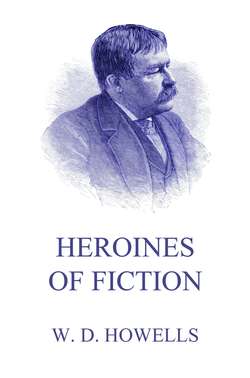Читать книгу Heroines Of Fiction - William Dean Howells - Страница 27
На сайте Литреса книга снята с продажи.
JANE AUSTEN'S EMMA WOODHOUSE, MARIANNE DASHWOOD, AND FANNY PRICE
ОглавлениеIN primitive fiction plot is more important than character; as the art advances character becomes the chief interest, and the action is such as springs from it. In the old tales and romances there is no such tiling as character in the modem sense; their readers were satisfied with what the heroes and heroines did and suffered.
When the desire for character arose, the novelists loaded their types with attributes; but still there was no character, which is rooted in personality. The novelist of to-day who has not conceived of this is as archaic as any romancer of the Middle Ages in his ideal of art. Most of the novels printed in the last year, in fact, are as crudely devised as those which have amused people of childish imagination at any time in the last thousand years; and it will always be so with most novels, because most people are of childish imagination. The masterpieces in fiction are those which delight the mind with the traits of personality, with human nature recognizable by the reader through its truth to himself.
The wonder of Jane Austen is that at a time when even the best fiction was overloaded with incident, and its types went staggering about under the attributes heaped upon them, she imagined getting on with only so much incident as would suffice to let her characters express their natures movingly or amusingly. She seems to have reached this really unsurpassable degree of perfection without a formulated philosophy, and merely by her clear vision of the true relation of art to life; but however she came to be what she was, she was so unquestionably great, so unmistakably the norm and prophecy of most that is excellent in Anglo-Saxon fiction since her time, that I shall make no excuse for what may seem a disproportionate study of her heroines.
